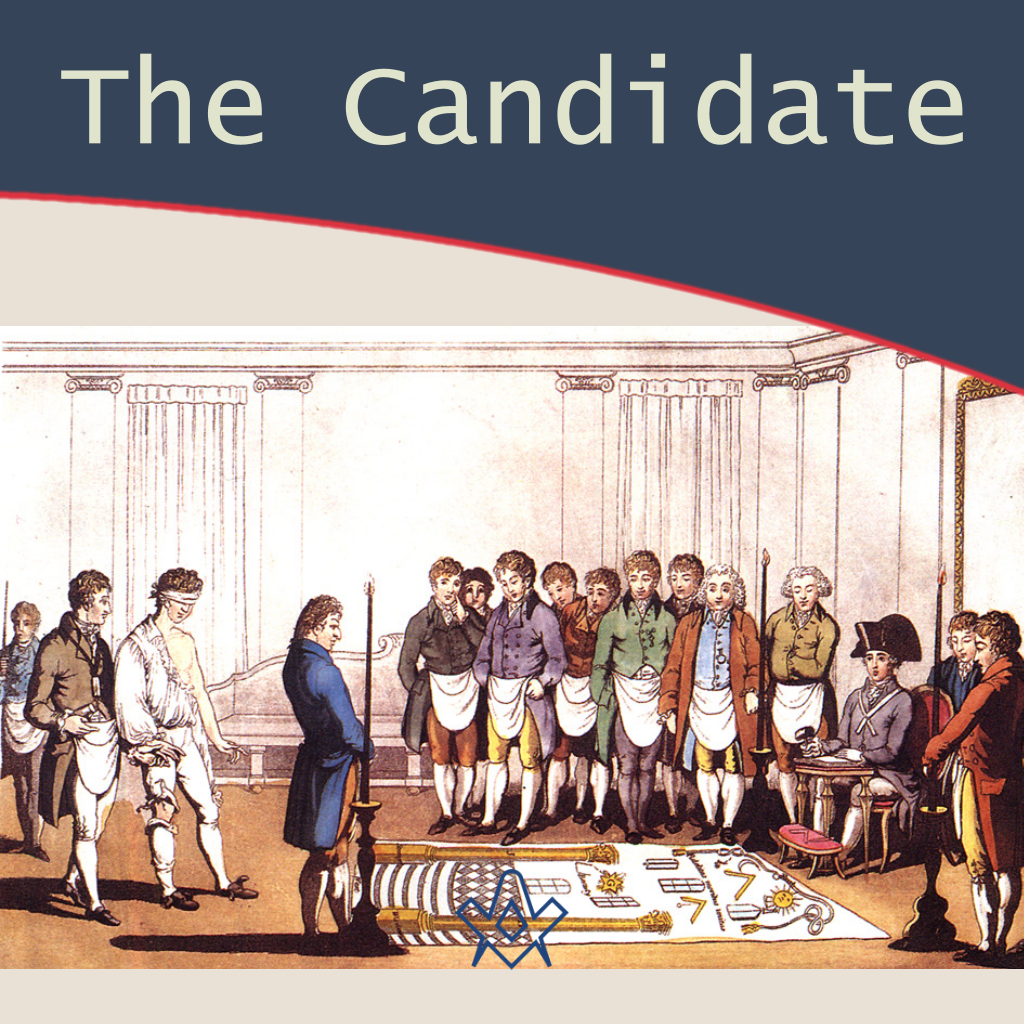The Candidate
By: Unknown
Edited Extract: Short Talk Bulletin – Vol. VIII May, 1930 No.5 – USA
Editorial note: Qualifications for membership in this article, were relevant at the time when it was first published in May 1930 for Regular Grand Lodges based in USA.
Since its first publication, some of the qualifications for membership have been adjusted.
In republishing this article in the Square Magazine, we have edited the original content, the essence of the article remains true today, as when it was first published 91 years ago.
Freemasonry first asks questions of the candidate for initiation, then questions about him.
A lodge must be satisfied as to five important matters; a petitioner’s motive for applying for the degrees; his physical being; his mental equipment; his moral character and his political status, using the word in its non-partisan sense.
![]()
A man must ask for Light, of his own free will and accord
It is highly important that Freemasons understand that a [candidate’s] motives for petitioning a lodge are proper, otherwise we cannot guard our West Gate from invasion by those who will not, because they cannot, become good Master Masons.
A man must ask for “Light, of his own free will and accord”. Not only must he so declare in his petition, but nine times during his initiation he must repeat the statement. Here grow the roots of that unwritten but universally understood prohibition – no Mason must ask his friend to join the Order.
![]()
first prepared in his heart
It is easy to persuade a friend to “join something”. We enjoy our country club – we would enjoy it more if our friend was a member. We put an application before him and persuade him to sign it; quite right and proper.
We belong, perhaps, to a debating club or an amateur theatrical society, or a Board of Trade or a luncheon club. Enjoying these activities, we desire our friend also to have these pleasure, so we ask him to become one of our circle.
An entirely proper procedure in such organizations but it is a wholly improper course in Masonry.
Unless a man petitions the Fraternity impelled by something within himself, he must state an untruth nine times in his initiation.
Unless he is first prepared “in his heart” and not in his mind, he can never grasp the simple but sublime essentials of brotherhood.
To ask our friend to petition our lodge, then, is to do him not a favor but an injury. In most Jurisdictions a petitioner is required seriously to declare upon his honor, not only that he comes of his own free will and accord, but uninfluenced by any hope of financial gain.
There are men who want to become Freemasons because they believe that the wider acquaintance and the friends made in the lodge will be “good for business”.
So do men join the church or a bible class because they believe they can sell their goods to their fellow members.
But the man who desires to become a member of a church that he may sell it a new carpet will hardly be an asset to the house of God; he who would become a Freemason in order to get the trade of his fellow lodge members will hardly be in a frame of mind either sincerely to promise brotherhood or faithfully to live up to its obligations.
Hence Freemasonry’s need to obtain the most solemn declaration possible of the secret intentions, the real motives, the hidden desires of those who would join our Mystic Circle.
![]()
free born and of mature age
The “Doctrine of the Perfect Youth” is perennially a matter for discussion in Grand Lodges.
The origin of the requirement that a man be perfect in all his limbs and parts goes back to the days before written history of the Craft. Mackey states that the first written law on the subject is found in the fifth article of the Old York or Gothic Constitutions adopted at York in A.D. 926:
“A Candidate must be without blemish and have full and proper use of his limbs; for a maimed man can do the Craft no good”.
This requirement has been repeated, and again repeated at various times in many different forms; in the “Ancient Charges at Making” (1686) and in the “Constitutions of 1722-23” which put into print the customs and enactments of the Mother Grand Lodge in 1717.
The same Masonic authority makes the 18th Landmark read:
“Certain qualifications of a candidate for initiation are derived from a Landmark of the Order.
These qualifications are that he shall be a man – shall be unmutilated – free born and of mature age.
Just how strictly this law should be interpreted is a moot question, and different Jurisdictions rule in different ways upon it. In no Jurisdiction, for instance, is a man considered to be ineligible because he wears glasses, or has a gold tooth!
In most Jurisdictions he must be “perfect” with two arms, two legs, to hands and two feet.
In some Jurisdictions, if he can conform to the requirements of the degrees, he may lack one or more fingers not vital to the tokens; in other he may not.
The foundation of the doctrine was an operative requirement; obviously a maimed man could not do as “good work, true work, square work” as the able-bodied man. The requirement has been carried over in Speculative Masonry.
Its greatest importance today is less in the need for physical strength and mobility than in undoubted fact that if we materially alter this Ancient Landmark, these old “usages and customs,” then we can alter others; admit women [as in Liberal and Co-Masonry] , elect by a majority vote, dispense with the Tiler and hold our meetings in the public places.
Inspired by patriotism some Jurisdictions have relaxed the severity of their physical requirements in favor of soldiers who have suffered on behalf of their country.
Into the argument pro and con as to the expedience of such relaxations this Bulletin cannot go.
Suffice it here that the lodge to which an applicant applies should be meticulously careful to see that the candidate conforms literally to the requirements as laid down by the Grand Lodge.
The mental qualifications required of a candidate are dictated more by the desires of the individual lodges than by any stated law.
Many Jurisdictions have ruled that a man who cannot read is not an eligible petitioner, for the good and sufficient reason that he who cannot read cannot search the Great Light, nor discover for himself the by-laws of his lodge, the constitution of the Grand Lodge, or the Old Charges and ancient Constitutions.
![]()
to study the seven liberal arts and sciences
The ability to read and write, however, important though it is, does not make a man educated!
Nothing is said in our Ritual about the need of an education prior to becoming a Mason, but by implication a man is supposed to have sufficient educational background to be able to study the seven liberal arts and sciences. “Sufficient education” is a very broad phrase and may include all sorts of men, of all sorts of education, as, indeed, it does.
A man may not know the multiplication table, murder the King’s English, and believe geometry is something to eat; and yet be a hard-working, true-hearted, single-minded brother to his brethren.
But it will hardly be doubted that if all Freemasons were of such limited educational equipment the Order would perish from the earth from the lack of appreciation of what it is, where it came from, and whither is it going!
First the friend who presents the petition; next the committee appointed to investigate; and finally, the lodge must be the judge of what constitutes “sufficient mental equipment” to enable a man to become a good member of the lodge.
A few ritualistic lions are in the path. He who is silly, is childish, in his dotage, who is insane, is known to be a fool – may not legally receive the degrees.
It is to be noted that “dotage” is not a matter of years but of the effect of years. A man of four score, in full possession of his mental faculties is not in his dotage.
Premature senility may attack a man in his fifties; he may truly be in his “dotage”.
Similarly, a “fool” does not mean, Masonically, a man without what we consider good judgment. “Jones was a fool to go into that stock” – “He is foolish to try to build that house” – What a fool he is to sell his store now” – do not really express belief that the man is a “fool” in the Masonic sense, merely that in these particular cases he acts as we think a fool would act.
![]()
under the tongue of good report
Masonically, a man is a “fool” who suffers from arrested mental development.
He is not mad, neither is he in his dotage, but he lacks the ordinary mental equipment and judgment ability of the rest of humanity. Such a one, of course, is ineligible to receive the degrees, since he can neither comprehend not live up to their teachings.
The moral qualifications a petitioner should possess are fully understood by all.
[In a Jurisdictions ruled by a regular Grand Lodge], the petitioner must express his belief in Deity.
[In a Jurisdictions that fall under liberal Grand Lodges, it is possible that an] atheist can be made a Mason.
He must be “under the tongue of good report” – i.e., have a good reputation in his community.
He must “obey the moral law”. But just how much is included in this phrase is an open question.
While a “moral man” may be hard to define, he is easy to recognize.
Committees seldom have much trouble in ascertaining that a man “morally fit” to become a Mason is, indeed, so.
The contrary is not always true – moral unfitness often masquerades under the appearance of virtue – hence the need for the competent committee.
In some Jurisdictions a separate ballot is taken on the candidate for the second and third degrees, to test his “moral fitness,” but usually the ballot which elects a petitioner to the degrees is considered to express the opinion of the membership on all his qualifications at once.
![]()
of mature and discreet age
The applicant for the degrees must be “of mature and discreet age’ (from the Old Charges).
In this country [USA], that is the legal majority. In some foreign Jurisdictions it varies from eighteen, for a “lewis” or son of a Mason, to twenty-five.
Our requirement of legal age is dictated not only by the fact that Masonry is for men, and a youth does not become a man until he is twenty-one; but because to be made a Mason in the United States a man must be a citizen, and citizenship, in its real sense, is not held by minors.
[United Grand Lodge of England – Dec 2021 Quarterly Communication
That Rule 157 be amended to read:
Qualifications for Initiation
157. No person shall on any pretence whatsoever be made a Mason while under the age of eighteen years nor at the age of eighteen before he shall have finally ceased to be in full time secondary education or training. Every candidate must be a free man, and in reputable circumstances.]
It is practically a universal requirement that the candidate be a resident of the Jurisdiction to which he applies for a period of one year prior to making the application.
A man who has not resided for a reasonable period in one place cannot have demonstrated to his neighbors the kind of man that he really is.
A committee is handicapped in making an investigation of a man who is not among friends and neighbors. Grand Lodges are usually very strict about this; but Grand Masters occasionally, upon a very good reason being shown, grant dispensations to shorten the statutory period.
A man who has resided in a Jurisdiction for ten months, let us say, is ordered [overseas for military service]. He desires to become a Mason before he departs.
If he is satisfied that the applicant can show the committee his moral worth, a Grand Master may permit him to make application and receive the degrees before he departs.
During [their military service], when all requirements seemed of less than the usual importance when seen in the fierce white light of patriotism; length of residence in a Jurisdiction was sometimes lost sight of.
A man considered worthy to have his petition placed before a Masonic lodge has much to recommend him.
If the committee has done its work well, and, if on the strength of that report the lodge elects him. he may well feel that an important seal has been placed upon his reputation and character.
That some committees do their work ill is evidenced by the occasional failures of brethren to walk uprightly.
That the vast majority of committees are intelligent and faithful is proven by the reputation of the Fraternity and the undoubted fact that a man known to be a Master Mason is almost universally considered to be a good man and true!
Original Source: Masonic World
Recent Articles: membership
 A Rose by any other Name may not be the same Explore the profound distinctions between conferred and transmitted Masonic degrees with Bro. Scott Wisdahl. Delve into how presentation quality, personal impact, and setting shape these rituals, and consider the potential for digital adaptations in modern Masonic practices. Join the discussion on enhancing the Masonic journey and preserving its essence. |
 Progression through the Degrees; a Rite or a Privilege? Exploring the layered journey of Freemasonry, Matt DA Fletcher probes the essence of progression—whether it's a mere rite or a privileged path. Delve into a nuanced perspective where every degree is not just a milestone but a fraction of a grander continuum. |
 Quantity vs Quality within the world of Freemasonry Dive into the compelling debate of quantity vs quality within the world of Freemasonry. Discover the transformative focus on attracting members aligned with the institution's values, promising not only growth but quality growth. High-value individuals assure sustainable development with their commitment to serving the brotherhood. |
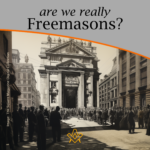 Maybe Freemasonry has opened its doors too wide. Perhaps some have not understood that the survival of Freemasonry in order to achieve its sublime purpose lies not in the number of members it has, but in their quality. Maybe we need less members and more Freemasons. Less men in Freemasonry and more Freemasonry in men. |
 What is ritual and why is it important? P1 Delve into the profound world of Freemasonry rituals and their significance. This insightful piece unravels the underlying importance of rituals, their impact on participants, and the transformative power they hold. Uncover why these centuries-old traditions remain integral to Masonic practice today. |
 Could Freemasonry be helpful for young men? Unravel the Masonic Brotherhood: Could Freemasonry be the antidote to modernity's challenges for young men? Dive in as we explore the Masonic world, its principles, camaraderie, and how its traditional rituals could help forge stronger identities in an increasingly complex world. |
 Discover the remarkable benefits of Lodge Meetings on your well-being. From fostering connections to combating stress, learn how these male-oriented gatherings offer an antidote to anger, hunger, isolation, and exhaustion. Dive into the power of shared experiences, understanding, and camaraderie. Your key to improved mental health awaits inside. |
 Tutorial for a Worshipful Master Unlock the Secrets to Leadership Mastery in our Worshipful Master's Tutorial! Brother Antonio Biella shares step-by-step guidance for Masonic Lodge leaders on honing their roles, duties, and future vision. Discover how to drive growth and engagement in your Lodge, setting ambitious goals and inspiring member participation. |
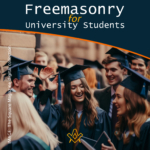 Freemasonry for University Students What are social skillset challenges facing students when they graduate from university ? |
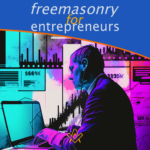 How the Core Values of Freemasonry; Brotherly Love, Relief and Truth Can Be Applied to Improve Productivity For Entrepreneurs |
 Why I became a Freemason: a personal journey of self-improvement Salik Tariq shares his reasons for becoming a Freemason – a journey of self-improvement, finding a community, and personal growth. |
 Freemasonry: Coming out of the Cloisters This paper examines the fundamental tensions on the lines of religion, gender and political ideology that exist in some jurisdictions of Freemasonry. It is on the first of these, religion, on which he makes an initial and exploratory focus. - by Gerald Reilly |
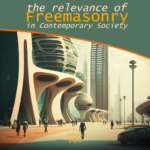 The Relevance of Freemasonry in Contemporary Society The role of Freemasonry in contemporary society is an indispensable one. Despite the challenges and misconceptions it faces, the organization remains steadfast in its humanitarian pursuits and commitment to personal growth and self-betterment. Through its efforts to evolve and adapt to the changing needs of its members and the world, Freemasonry continues to be a vital force in shaping a better future for all. |
 Has Freemasonry managed to revive and thrive after the darkness of the Pandemic? Robert Lomas gives us some (promising) insights. |
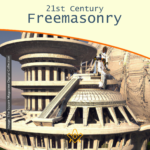 21st Century Freemasonry – a Sign of the Times? A recent article in The Times of London highlighted the dilemma 21st Freemasonry is facing. In this article one Master Mason shares his views of the strengths, and the challenges of modern Masonry. |
 A concept that is both based on our Freemasonic rituals and what we understand as teamwork. This article by Chris Batty examines why teamwork in the lodge is the network that binds us. |
 Lebanese Freemasonry has been both witness to and sometimes participants in turbulent events and forces, which shaped and influenced their world. |
 Is a Masonic Tradition Necessary? Dealing with Masonic tradition is a complex subject that requires careful analysis in order to reach a balanced point on the best etymological definition and the set of discourses and practices, which often end up being presented as such, without, however, presenting bases that support them, often serving only as a discourse that restricts and controls the masses. Fernando Rodrigues de Souza debates this complex subject. |
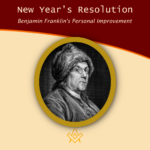 New Year's Resolution with Benjamin Franklin's Personal Improvement Are you ready for a new year's resolution challenge ? To accomplish his life’s goals, at 25 ( around 290 years ago ), Benjamin Franklin developed and committed himself to a personal improvement program that consisted of 13 virtues. You are invited to join me in practicing his daily routine for 2023. |
 The Alberta Masonic Higher Education Bursary Fund is to help the next generation of Albertans, our children and grandchildren, to obtain the education they need to lead successful lives and contribute to the welfare of mankind. As you can see from this little lesson of our history, education is truly a Masonic obligation. |
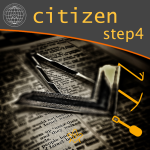 To be a Better Citizen of the World: Step 4 A value proposition for Pure Ancient Masonry as defined in terms of Citizenship; the allegories, symbolism and lessons are a blueprint for all Freemasons to be a better citizen of the world. |
 To be a Better Citizen of the World; Step 3 A value proposition for Pure Ancient Masonry as defined in terms of Citizenship; the allegories, symbolism and lessons are a blueprint for all Freemasons to be a better citizen of the world. |
 In connection with recent article about Freemasonry in the metaverse, we look at how an Egregore applies to Freemasonry in a digital world |
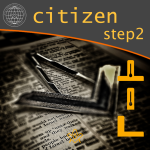 To be a Better Citizen of the World; Step 2 A value proposition for Pure Ancient Masonry as defined in terms of Citizenship; the allegories, symbolism and lessons are a blueprint for all Freemasons to be a better citizen of the world. |
 There are many brotherhoods in the world, and Freemasonry is one of the most significant and successful of them all. This article will be the focus two questions: the importance of brotherhood ? and is there room for improvement in Freemasonry? |
 Intergenerational relations in Masonry: challenges and possibilities Backed with scientific research, Professor Luiz Neto and Professor Alexandre Braune investigate the Intergenerational relations in Freemasonry and explores the challenges and opportunities. |
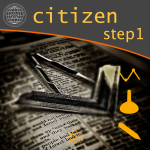 To be a Better Citizen of the World; Step 1 A value proposition for Pure Ancient Masonry as defined in terms of Citizenship; the allegories, symbolism and lessons are a blueprint for all Freemasons to be a better citizen of the world. |
 The Masonic Temple is a platform where both Freemasons and non-Masons, enthusiasts of real art and spiritual growth, connect to the new world of the metaverse. A Freemasonry in the metaverse project, based regular freemasonry principles. |
 Opportunity to fix the Sussex fudge Is there a value proposition for members, that under English Constitution Freemasonry, we have a 4 part offering; Entered Apprentice, Fellowcraft , Master Mason and Companion, conducted in a single craft lodge ? |
 Value Proposition of Freemasonry In addressing declining lodge membership and lack of attendance, we need to assess the value it offers to members. What is value, and what does it mean to you? |
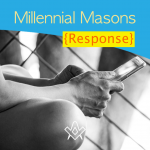 What is a 'Millennial' and what do they want from Freemasonry? You'll be surprised at the answers. |
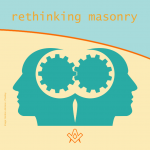 Let us help answer a fundamental question, from a confused newly raised brother asking “What does it all mean and where do I go from here?” |
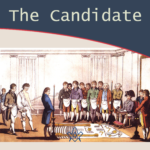 Written in 1930, much of the advice is still relevant today - although some may provoke further thought or debate! |
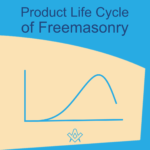 Product Life Cycle of Freemasonry An inconvenient truth about the product life cycle of Freemasonry |
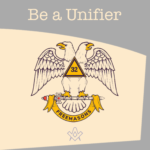 Freemasonry is local. This is where we need to start. We start with our Facebook friends, our neighbours, our colleagues, our lodges… |
 Freemasonry in the time of pandemic The Rule of Six. Localised lockdowns. Second wave? What do we do now?! The answer is simple - engage with members, promote Masonic education and get thinking outside the lodge. |
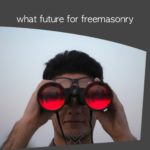 The current functioning of the Masonic movement has some positive aspects and others that are blatantly backward and counterproductive. |
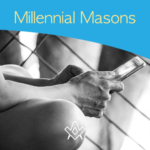 What is a 'Millennial' and what do they want from Freemasonry? You'll be surprised at the answers. |
 How to improve your Lodge Membership Marketing Program. |
 The Anti-Social Impact of Social Media The 'dark side' of social media and its negative effect on our mental health |
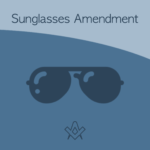 If Freemasonry cannot meet, is this an opportunity to make a change to how we do things? |
 Has your lodge accepted an unknown candidate from the internet? Third in a three-part series looking at the process to accepting candidates via the internet |
 Is the brother of a brother a brother ? Rights to visit - recognition and regularity re-evaluated. |
 The second article in the Unknown Candidate series - Outlining the social media marketing process to attract the unknown candidate to make that first enquiry |
 Ask a random Freemason the purpose of Freemasonry and the likely response will be to “make good men, better”. Research undertaken by James Justin Davis Pennsylvania Academy of Masonic Knowledge. |
 Has your lodge accepted an unknown candidate from the internet? First in a three-part series looking at the process to accepting candidates via the internet |
 Mental Health - Raising its awareness and how we as Freemasons throughout the entire UK can help our fellow brethren and their families when they need it. |
 Share one thought why freemasonry is relevant today - Open question posted on Facebook with a very wide range of responses from Brethren across the globe |
 The Tipping Point of Freemasonry Why do brothers lose interest in Freemasonry and what can we do to get that spark back? At what moment did our own thoughts begin to waver? |
masonic knowledge
to be a better citizen of the world
share the square with two brothers

click image to open email app on mobile device


